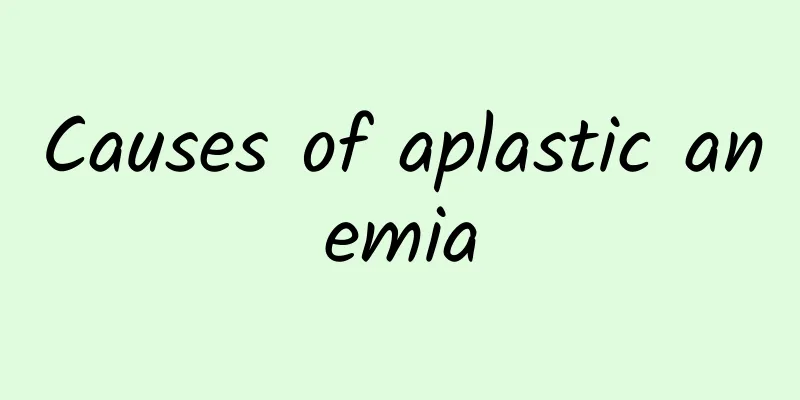What does pangastritis mean?

|
Nowadays people live at a fast pace. They are often busy with work and go hungry one day and full the next. Over time, many people suffer from gastritis to varying degrees. On the one hand, it is caused by people’s bad eating habits. People eat irregularly, eat fast, and eat unhealthy food. On the other hand, people are mentally stressed, which can stimulate the occurrence of gastritis. What is pangastritis? Gastritis is an inflammation of the gastric mucosa caused by various reasons and is one of the most common digestive system diseases. According to the urgency of clinical onset, gastritis can generally be divided into two types: acute and chronic gastritis; according to different causes, it can be divided into Helicobacter pylori-related gastritis, stress gastritis, autoimmune gastritis, etc. The pathological changes of gastritis caused by different causes are also different, usually including three processes: epithelial damage, mucosal inflammatory response and epithelial regeneration. Acute gastritis can be divided into simple, erosive and hemorrhagic, corrosive, and suppurative gastritis according to its pathological changes. Chronic gastritis can be divided into three categories: non-atrophic, atrophic, and special types of gastritis according to its pathological changes. The diagnosis and differential diagnosis of various types of gastritis are mainly based on gastroscopy. 1. Causes of acute gastritis It can be divided into two categories: exogenous and endogenous. Anything that enters the stomach through the mouth, such as bacteria, drugs, toxins, corrosives, etc., is considered an external factor. Any pathogenic factors that spread to the stomach wall through blood circulation or lymph are called internal factors. (1) Physical and chemical factors: Strong tea, strong coffee, spicy food, strong liquor, overcold or overheated food, rough food, etc. can damage the gastric mucosa, destroy the mucosal barrier and cause gastric mucosal inflammation. Non-steroidal anti-inflammatory drugs such as aspirin, indomethacin, certain antibiotics, corticosteroids and other drugs can not only stimulate the gastric mucosa and cause damage, but also affect the repair of the gastric mucosa and aggravate inflammation. If certain strong corrosive agents such as nitric acid, hydrochloric acid, sulfuric acid, potassium hydroxide, sodium hydroxide, etc. are swallowed, it may cause acute corrosive gastritis. (2) Biological factors mainly include various pathogenic bacteria and toxins, such as Salmonella, Escherichia coli, halophilic bacteria, Staphylococcus aureus toxin and botulinum toxin. Gastritis can occur within hours of eating food contaminated by bacteria or toxins. Pyogenic bacteria such as α-hemolytic streptococcus and Staphylococcus aureus spread to the stomach wall through the blood or lymph, causing acute purulent gastritis. (3) Other stressful conditions such as systemic infection, severe trauma, major surgery, shock, and severe mood swings. Foreign bodies in the stomach, gastric stones, and radiotherapy to the gastric area can all cause this disease. 2. Causes of chronic gastritis (1) Biological factors: The main pathogen of chronic gastritis is Helicobacter pylori, and more than 90% of patients with chronic gastritis are infected with Helicobacter pylori. (2) Immune factors The onset of some chronic gastritis is related to immune factors, and parietal cell antibodies can be detected in the patient's serum. (3) Physical factors such as long-term stimulation of the gastric mucosa by overcold or overheated food, rough food, strong tea, strong coffee, strong liquor, and spicy food can lead to repeated damage to the gastric mucosa and cause chronic gastritis. (4) Chemical factors: Smoking is one of the causes of chronic gastritis. Nicotine in tobacco can affect the blood circulation of the gastric mucosa and cause dysfunction of the pyloric sphincter, resulting in bile reflux. Long-term use of nonsteroidal anti-inflammatory drugs such as aspirin, indomethacin, etc. can damage the gastric mucosal barrier. (5) Other factors such as aging, malnutrition, heart failure, cirrhosis, diabetes, and thyroid disease are all related to the onset of chronic gastritis. 1. Acute gastritis (1) General treatment: bed rest, elimination of the cause, light liquid diet or appropriate fasting. For those with obvious vomiting and diarrhea, replenish electrolytes and water in time. (2) Symptomatic treatment includes administration of gastric mucosal protectants and acid inhibitors; patients with bacterial infection should be given antibiotics. (3) Special treatment: Acute suppurative gastritis should be treated with large doses of sensitive antibiotics as soon as possible. When abscesses form in the local area of the lesion and drug treatment is ineffective, surgical treatment can be performed. Corrosive gastritis caused by swallowing strong acids or alkalis can be treated by taking milk, egg white or other liquid mucosal protective agents. In case of severe pain, analgesics such as morphine can be given. 2. Chronic gastritis (1) General treatment: Quit smoking and avoid drinking alcohol; avoid using drugs that damage the gastric mucosa, such as aspirin, indomethacin, erythromycin, etc.; eat regularly and avoid overheated, salty, and spicy foods; actively treat chronic oral, nasal, and pharyngeal infections. (2) Drug treatment 1) Commonly used drugs for protecting gastric mucosa include colloidal bismuth subcitrate (CBS), sucralfate, mezilin-S, aluminum hydroxide gel, and gastric mucosa. 2) Drugs that adjust gastrointestinal motility function can be used to treat upper abdominal distension, such as domperidone. For those who suffer from hiccups, bloating or reflux, gastrokinetic drugs can be used. 3) Antibiotics If gastroscopy shows Helicobacter pylori is positive, antibiotics should be taken. Clarithromycin, amoxicillin, etc., all have the effect of clearing Hp. Generally, two types can be selected, and they are often used in combination with gastric mucosal protectants and acid inhibitors. 4) Drugs that reduce gastric acid, such as alkaline antacids such as sodium bicarbonate and aluminum hydroxide; H2 receptor antagonists such as cimetidine and ranitidine; proton pump inhibitors such as omeprazole and lasoprazole, etc. 5) Painkillers: Patients with severe upper abdominal pain can take atropine, propantheline, belladonna tablets or 654-2 orally to reduce gastric acid secretion and relieve abdominal pain symptoms. 6) Other symptomatic treatment drugs include digestive aids, such as pancreatic enzymes, yeast tablets, lactase, dimethicone tablets, etc. To prevent bile reflux, you can take aluminum carbonate magnesium and cholestyramine to absorb bile; for those who have vomiting blood and bloody stools, take cimetidine orally. |
<<: The difference between spontaneous sweating and night sweats
>>: How to wash off green walnut juice on your hands
Recommend
What are the symptoms of anal inflammation?
Anal inflammation is also quite common in daily l...
Why is my lower body always wet? Vulvar itching?
Although with the improvement of medical standard...
What are the effects and functions of rock sugar soaked in vinegar?
Vinegar is a seasoning used in daily cooking. Vin...
How can human body fat be discharged?
With the continuous improvement of dietary standa...
Caseous necrosis
The term caseous necrosis is not often heard. Thi...
How to remove fluid from maxillary sinus
Our nose is composed of many parts, and the maxil...
The difference between liver palm and normal palm
The appearance of liver palms is mostly closely r...
Is back pain caused by kidney disease? It may also be caused by these diseases
Some people always simply think that lower back p...
A must-see for women! Have you taken this magic medicine today?
Women over a certain age are no strangers to Wu J...
What causes morning sweating?
If you sweat profusely in the morning, you should...
How to Identify Erythrodermic Psoriasis
Disease is something none of us wants to see, bec...
Itchy, peeling feet with blisters
Itchy, peeling and blisters on the feet are commo...
Can pregnant women take a bath with mugwort water?
We all know that mugwort has great effects. When ...
Is there a cure for dilated cardiomyopathy?
In life, there are many people suffering from ser...
What is the cause of chest tightness, hiccups, and a foreign body sensation in the throat?
Chest tightness, hiccups, and a foreign body sens...









